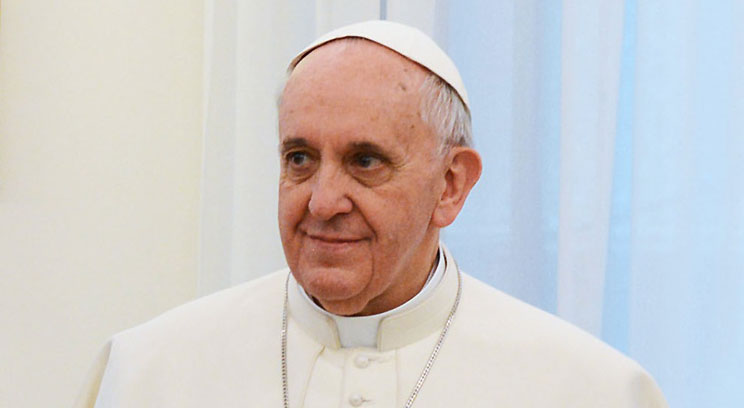Unless you've been hiding under a rock for the last month, you know that a new pope was selected. As a business school at a Catholic University, we wondered how Pope Francis' challenges as head of the Catholic Church relate to the challenges of any new CEO. "One of the things the new pope will have to deal with is a classic business mess — a multi-billion dollar conglomerate that has stumbled and is losing money and relevance," noted Planet Money. We asked some of our faculty to weigh in and got some surprising answers, and discovered that UST has a direct influence on what the Church says about the "Vocation of the Business Leader."
Professor Robert G. Kennedy from the Ethics and Business Law Department noted that while people are still trying to figure out the pope’s new priorities, he is not the CEO of the church, and the Vatican is not the headquarters of a global corporation.
“The pope is leader of the college of bishops,” said Kennedy. “And the church is more like a confederation of thousands of local organizations.” There are thousands of bishops around the world who make decisions about their individual dioceses, without running everything through the Vatican.
 Kennedy noted that UST professor Michael Naughton, Moss Chair in Catholic Social Thought and director of the John A. Ryan Institute for Catholic Social Thought was the principal editor of a document, entitled Vocation of the Business Leader, issued last March by the Vatican's Pontifical Council for Justice and Peace. Several other Opus College of Business faculty were on the drafting committee.
Kennedy noted that UST professor Michael Naughton, Moss Chair in Catholic Social Thought and director of the John A. Ryan Institute for Catholic Social Thought was the principal editor of a document, entitled Vocation of the Business Leader, issued last March by the Vatican's Pontifical Council for Justice and Peace. Several other Opus College of Business faculty were on the drafting committee.
This publication forms the base of the church’s opinion about business. “In this document, the church, drawing from its rich social tradition, all but declared that ‘God loves businesses’ and offered concrete ways to bridge principle and practice,” explained Naughton in America Magazine.
We asked Naughton to share a few thoughts:
With the election of Pope Francis and his concern and love for the poor, both materially and spiritually, there seems to have been an interesting confluence of movements that have arisen spontaneously to take up the question of poverty and business’ role and responsibilities with regard to that question. The Vocation of the Business Leader document offers concrete ways to bridge the gap between principle and practice in the area of business and particularly in regard to business and the poor of the world.
Nowhere is this clearer than in the section of the Vocation document entitled, In solidarity with the poor. This section explains the following:
The production of goods and services has ‘a progressively expanding chain of solidarity,’ which raises several critical issues and opportunities for the business community. One is the importance of identifying, in a spirit of solidarity, the real needs of the poor and the vulnerable, including people with special needs, which are often overlooked in a marketplace driven by short-term profit. The Christian business leader is alert for opportunities to serve these neglected populations and sees this not only as a proper social responsibility but also as a great business opportunity. Developments in the field of the ‘bottom of the pyramid’ products and services—such as microenterprises, microcredit, social enterprises, and social investment funds—have played an important role in addressing the needs of the poor. These innovations will not only help to lift people from extreme poverty but could also spark their creativity and entrepreneurship and contribute to launching a dynamic of development.
As Pope Francis continues to turn the focus of the Church and the world to those who live in poverty, it is encouraging to see that even in the realm of business there can be a refocusing of thought and intention that can bring us closer to those who are marginalized from the benefits of business and help us see how our lives can affect those who are in need in our world today.
Mike Naughton recently traveled to Beirut to release the document in Arabic. It has been translated in to more than a dozen languages. You can download a copy or learn more on the Center for Catholic Studies website.







